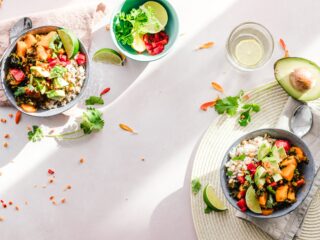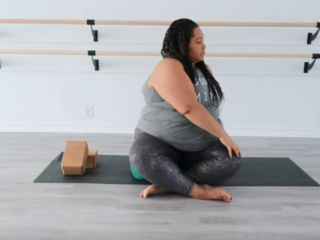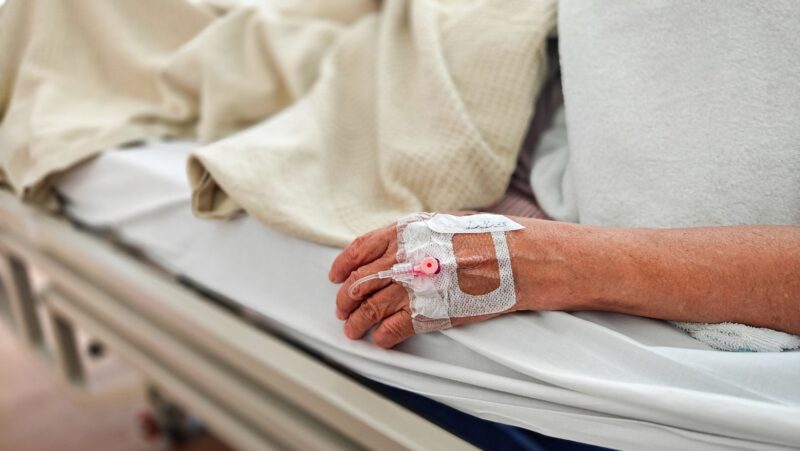
Are you struggling to lose weight? Have you tried every diet and exercise program out there, but still can’t seem to slim down? If so, you might be interested in the keto gt diet.
This program claims to help you lose weight quickly and effectively by putting your body into a state of ketosis. But is keto gt legit? We did some research to find out.
Is the keto diet effective for weight loss?
The ketogenic diet is a high-fat, adequate-protein, low-carbohydrate diet that in medicine is used primarily to treat difficult-to-control (refractory) epilepsy in children. The diet forces the body to burn fats rather than carbohydrates. Normally, the carbohydrates contained in food are converted into glucose, which is then transported around the body and is particularly important in fueling brain function. However, if there is very little carbohydrate in the diet, the liver converts fat into fatty acids and ketone bodies. The ketone bodies pass into the brain and replace glucose as an energy source. An elevated level of ketone bodies in the blood, a state known as ketosis, leads to a reduction in the frequency of epileptic seizures. Around half of children and young people with epilepsy who have tried some form of this diet saw the number of seizures drop by at least half, and the effect persists even after discontinuing the diet.[2] Some evidence indicates that adults with epilepsy may benefit from the diet, and that a less strict regimen, such as a modified Atkins diet, is similarly effective.[1] Potential side effects may include constipation, high cholesterol,.
How does the keto diet work?
The keto diet is a high-fat, low-carbohydrate diet that aims to promoteweight loss by forcing the body to burn fat for energy, rather than carbohydrates. When carbohydrates are restricted, the body is forced to break down stored fat for energy, which can lead to weight loss.
What are the benefits of the keto diet?
There are many potential benefits of following the keto diet, including weight loss, improved mental clarity and decreased inflammation. The keto diet is a low-carb, high-fat diet that has been shown to lead to weight loss and other health benefits.
What are the risks of the keto diet?
The keto diet has become increasingly popular in recent years, but there are some risks associated with this high-fat, low-carbohydrate way of eating. These risks can be minimized by working with a qualified healthcare professional and getting regular blood tests to ensure that you are in ketosis.
There are four primary risks associated with the keto diet:
1. Kidney stones: The keto diet can increase the risk of developing kidney stones because it causes the body to excrete more calcium in the urine.
2. Muscle cramps: Muscle cramps are common on the keto diet due to the loss of electrolytes such as sodium, potassium, and magnesium. These electrolytes must be replenished through dietary sources or supplements.
3. Hypoglycemia: Hypoglycemia, or low blood sugar, can occur when people consume too few carbohydrates on the keto diet. This is especially true for people taking insulin or other blood sugar-lowering medications.
4. Ketoacidosis: Ketoacidosis is a serious complication that can occur when people with diabetes follow a keto diet improperly. Ketoacidosis occurs when the body produces too many ketones, causing the blood to become acidic. This condition can lead to diabetic coma and even death if it is not treated quickly.
How to follow the keto diet
The keto diet is a high-fat, low-carbohydrate diet that has been gaining popularity in recent years. This type of diet is based on the premise that by limiting carbs and increasing fat intake, the body will go into a state of ketosis, in which it burns fat for energy instead of carbohydrates.
Following the keto diet can be a bit challenging, as it requires a complete change in eating habits. However, with a little planning and effort, it is possible to stick to this diet and see successful results.
Here are some tips on how to follow the keto diet:
1. Cut out all sources of carbohydrates from your diet. This includes bread, pasta, rice, potatoes, fruit, and sweets. Instead, focus on eating plenty of meat, seafood, eggs, vegetables, and healthy fats such as avocados and olive oil.
2. Make sure you are getting enough fat. On the keto diet, fat should make up around 70-80% of your daily calories. This means you need to eat plenty of fatty meats, oils, nuts, and seeds.
3. Get enough protein. Although you want to focus on fat intake on the keto diet, you still need to make sure you are getting enough protein. Aim for around 20-30% of your daily calories from protein sources such as meat, fish, eggs, and dairy.
4. Drink plenty of water. When following the keto diet, it is important to stay hydrated by drinking plenty of water throughout the day. You may also want to supplement with electrolytes to help avoid dehydration and side effects such as headaches and fatigue
What to eat on the keto diet
If you’re new to the keto diet, it may be confusing to figure out what to eat. This guide will help you choose the best foods for your new way of eating.
In general, you want to eat mostly fat, a moderate amount of protein, and a small amount of carbs. This ratio is often called “macronutrients” or “macros.”
Fat:
Fat is the main source of energy on the keto diet. You should aim for 70-80% of your calories from fat.
Good sources of fat include:
-olive oil
-avocados
-coconut oil
-butter
-animal fats (lard, tallow)
Pro tip: Use fat as a condiment. It’s great on almost everything!
Protein:
Protein should make up about 20-25% of your calories. Although it doesn’t have a direct effect on blood sugar levels, too much protein can be converted into glucose in a process called gluconeogenesis. This can kick you out of ketosis and make it harder to lose weight. Good sources of protein include:
-meat (beef, pork, lamb, chicken, turkey)
-fish ( salmon , tuna , trout)
-eggs 2 Carbs : 2 Carbs should make up about 5-10% of your calories . Many people think that carbs are evil , but they are actually an important part of a healthy diet . They just need to be the right kind of carbs . The best sources of carbs on the keto diet are : 3 -Non starchy vegetables : 4 asparagus , broccoli , cauliflower , kale ,spinach 5 -Nuts and seeds : 6 walnuts , almonds , sunflower seeds 7 -Berries : 8 blackberries , raspberries , blueberries 9 legumes 10 are also a good source of carbs but they are typically avoided on the keto diet because they contain more digestible carbs than non -starchy vegetables . 11 Drinks 12 water is the best drink for people on the keto diet . 13 You can also drink unsweetened coffee and tea . 14 Alcohol is OK in moderation but be aware that it can contain plenty of sugar
What to avoid on the keto diet
When you’re starting any new diet, there are going to be foods that you have to give up, and the keto diet is no different. In order to achieve and maintain a state of ketosis — burning fat for fuel instead of carbs — you need to avoid eating certain types of food.
Most people think of the keto diet as a high-fat, low-carb diet, but it’s also important to moderate your protein intake. too much protein can kick you out of ketosis. In general, you want to stick to eating whole, unprocessed foods. That means avoiding most grains, sugars, legumes, dairy and unhealthy fats like vegetable oils.
Here are some specific types of food to avoid on the keto diet:
Sugars: This includes all types of sugar, including honey, agave nectar, maple syrup and table sugar. You should also avoid starchy vegetables like potatoes, sweet potatoes and winter squash.
Grains: All types of wheat — including spelt, kamut, farro and rye — as well as rice, corn and oats. You can find “gluten-free” versions of many grains, but they are usually made with other types of flour that are just as high in carbs.
Legumes: Beans (including black beans, kidney beans and lentils), chickpeas, soybeans and peanuts are off-limits on the keto diet. Peanuts are technically a legume, not a nut.
Dairy: Most dairy products are high in carbs unless they are very low in fat like heavy cream or full-fat butter. That means you need to limit your consumption of milk, yogurt and cheese. Some people can tolerate small amounts of hard cheeses like cheddar or Parmesan cheese — check with your doctor or nutritionist first. Butter is OK in moderation on the keto diet..
Tips for success on the keto diet
1. Get educated about keto.
Keto is a very strict diet, and it’s important to understand the do’s and don’ts before you start. There are a lot of resources available online and in books to help you learn about keto, and we recommend doing your research before beginning any new diet.
2. Find a community or support group.
When starting any new diet, it can be helpful to have support from others who are going through the same thing. There are many online communities and forums dedicated to keto, and we recommend finding one that you can connect with for encouragement and motivation.
3. Make sure you’re getting enough fat.
One of the main tenets of keto is eating a high-fat diet, and this can be difficult for some people to adjust to. In addition to getting fat from whole foods like avocados, eggs, and nuts, you can also use oils and butter to increase your fat intake. Just be sure not to go overboard – too much fat can lead to weight gain.
4. Don’t skimp on the veggies.
While it’s important to get enough fat on keto, you also need to make sure you’re getting enough veggies. Non-starchy vegetables like leafy greens, broccoli, and cauliflower are key components of a healthy keto diet. Be sure to include them at every meal!
5. Be patient.
Any time you make a major change to your diet, it takes time for your body to adjust. This is especially true of keto – people often report feeling tired and cranky in the first few weeks as their bodies transition into ketosis (a state of burning fat for energy). Hang in there – things will get better!
The bottom line on the keto diet
There’s no doubt that the keto diet can help you lose weight. In fact, studies show that people who follow a keto diet can lose up to 2 pounds (1 kg) more than those who follow a traditional low-fat diet (22, 23).
However, the keto diet is not a magic bullet for weight loss. It’s also not for everyone. If you’re thinking about trying the keto diet, it’s important to talk to your doctor first to make sure it’s safe for you and to ensure that you understand how it works.
FAQs about the keto diet
###Can I drink alcohol on the keto diet?
If you’re trying to maintain ketosis, moderate consumption of alcohol is probably okay. But if you’re trying to lose weight quickly, it’s best to avoid alcohol altogether. Alcohol has a lot of calories but few nutrients, and it can disrupt ketosis. If you do drink alcohol, limit yourself to one or two drinks per day and be sure to monitor your ketone levels closely.
###Can I eat fruit on the keto diet?
Most fruits are high in carbs, so they’re not allowed on the keto diet. However, there are a few low-carb fruits that you can eat in moderation, such as strawberries, raspberries, and blackberries.
###Is coffee allowed on the keto diet?
Yes, coffee is allowed on the keto diet. However, it’s important to limit yourself to black coffee or coffee with unsweetened almond milk or heavy cream. Adding sugar or other high-carb ingredients will negate the benefits of the diet.
###What about other beverages?
In general, you should avoid all beverages that contain sugar or other carbs. This includes fruit juices, soda, sports drinks, and sweetened tea or coffee drinks. You can drink water, unsweetened tea or coffee, and moderate amounts of dry wine or liquor.










